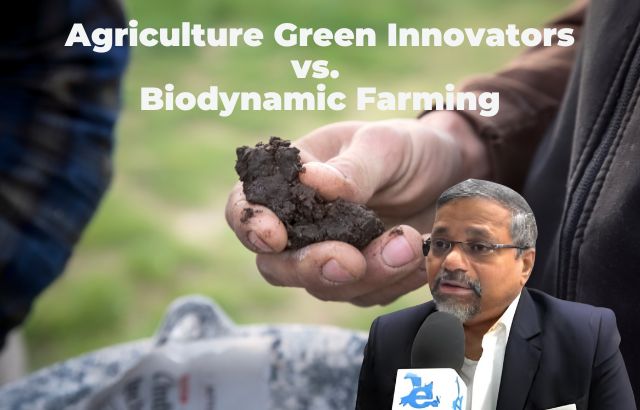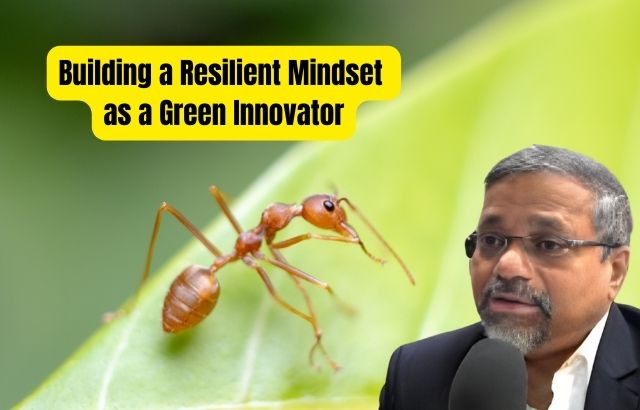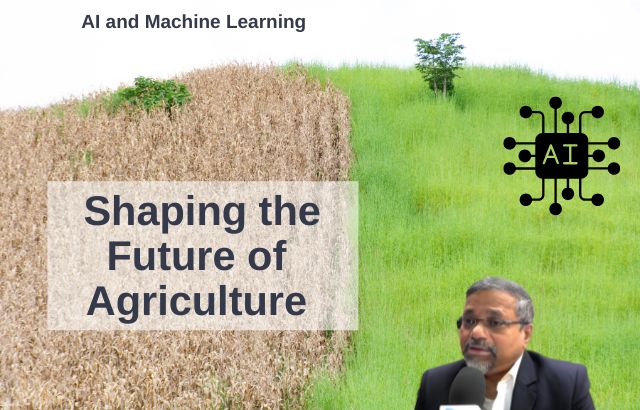In today’s rapidly evolving world, the need for innovation in sustainability has become more pressing than ever. Green innovators are at the forefront of this movement, driving change towards a more sustainable future. What qualities distinguish these individuals and enable them to make a significant impact? Let’s explore the top 10 qualities of a great green innovator:
1. Passion for Sustainability
A great green innovator is driven by a deep commitment to preserving the planet. Their work focuses on reducing environmental impact while enhancing agricultural productivity.
Example: Dr. Vandana Shiva, an Indian environmental activist, promotes sustainable agriculture through her organization, Navdanya, which preserves indigenous seed varieties and advocates for organic farming.
2. Scientific Curiosity
Curiosity fuels groundbreaking discoveries. Researchers in this field constantly ask questions about soil health, crop resilience, and climate adaptation, seeking innovative solutions.
Example: Norman Borlaug, the father of the Green Revolution, explored wheat breeding techniques to develop high-yield, disease-resistant varieties, saving millions from hunger.
3. Interdisciplinary Knowledge
Green innovators blend knowledge from agronomy, environmental science, biotechnology, and data analytics to create holistic solutions.
Example: The International Rice Research Institute (IRRI) uses interdisciplinary approaches, combining genetics, climate modeling, and farmer feedback to develop climate-resilient rice varieties.
4. Problem-Solving Mindset
Agriculture faces complex challenges like drought, pests, and soil degradation. Great researchers tackle these issues with creative, practical solutions.
Example: In Kenya, push-pull farming, developed by ICIPE researchers, uses companion planting to deter pests naturally, reducing pesticide use and boosting yields.
5. Adaptability to Change
Climate and market conditions are ever-evolving. Innovators must adapt their research to new challenges, such as extreme weather or shifting consumer demands.
Example: Australian researchers at CSIRO developed drought-tolerant wheat varieties to help farmers cope with increasingly erratic rainfall patterns.
6. Collaboration and Communication
Great innovators work with farmers, policymakers, and communities, translating complex research into actionable insights.
Example: The CGIAR network collaborates globally with local farmers to implement climate-smart agriculture practices, ensuring research reaches the ground level.
7. Technological Proficiency
From precision agriculture to AI-driven crop monitoring, technology is transforming farming. Researchers must embrace tools like drones, IoT, and gene editing.
Example: Indian startup AgNext uses AI and spectroscopy to assess crop quality, helping farmers improve market access and reduce waste.
8. Ethical Responsibility
Green innovators prioritize ethical practices, ensuring their solutions benefit both people and the planet without exploiting resources or communities.
Example: Fair Trade certification programs, supported by agricultural research, ensure farmers receive fair wages while promoting sustainable practices.
9. Resilience and Perseverance
Research is often a long, challenging process with setbacks. Great innovators remain determined to achieve meaningful impact.
Example: Dr. Sanjaya Rajaram, a wheat breeder, spent decades developing over 480 wheat varieties, contributing to global food security despite numerous obstacles.
10. Vision for the Future
A great researcher envisions a world where agriculture thrives in harmony with nature, inspiring others to join the mission.
Example: The Rodale Institute’s regenerative agriculture research inspires farmers worldwide to adopt practices that sequester carbon and restore soil health.
FAQs

Q1: What skills are essential for a career in green innovation and agriculture research?
A: Key skills include agronomy, data analysis, biotechnology, communication, and proficiency in technologies like AI and GIS. A strong foundation in environmental science is also crucial.
Q2: How can young researchers contribute to sustainable agriculture?
A: Start by gaining hands-on experience through internships, volunteering with NGOs, or working on local farms. Pursue interdisciplinary education and stay updated on emerging technologies.
Q3: What are some emerging trends in agriculture research?
A: Trends include precision farming, vertical agriculture, CRISPR-based gene editing, and carbon farming to mitigate climate change.
Q4: How do green innovators balance productivity with sustainability?
A: By prioritizing practices like agroecology, crop diversification, and organic farming, innovators ensure long-term soil health and ecosystem balance while maintaining yields.
Q5: What challenges do agriculture researchers face today?
A: Challenges include funding constraints, climate variability, resistance to new technologies, and the need to scale solutions to smallholder farmers.
A Message for Future Aspirants
To the next generation of green innovators and agriculture researchers: Your passion and ingenuity are the keys to a sustainable future. Agriculture is not just about feeding people today—it’s about ensuring our planet thrives for generations to come. Embrace challenges, learn from farmers, and never stop asking “how can we do better?” The world needs your vision, resilience, and commitment to create a greener, more equitable tomorrow. Start small, think big, and keep pushing forward!
Jaiguru Kadam
Advocate for Sustainable Agriculture
Conclusion
Green innovators play a pivotal role in shaping a sustainable future for generations to come. By embodying these qualities—visionary thinking, passion, creativity, collaboration, resilience, systems thinking, risk-taking, ethical leadership, continuous learning, and impact orientation—they inspire positive change and drive innovation towards a more sustainable world. Whether through groundbreaking technologies, policy advocacy, or community engagement, green innovators are catalysts for transformative environmental progress.












